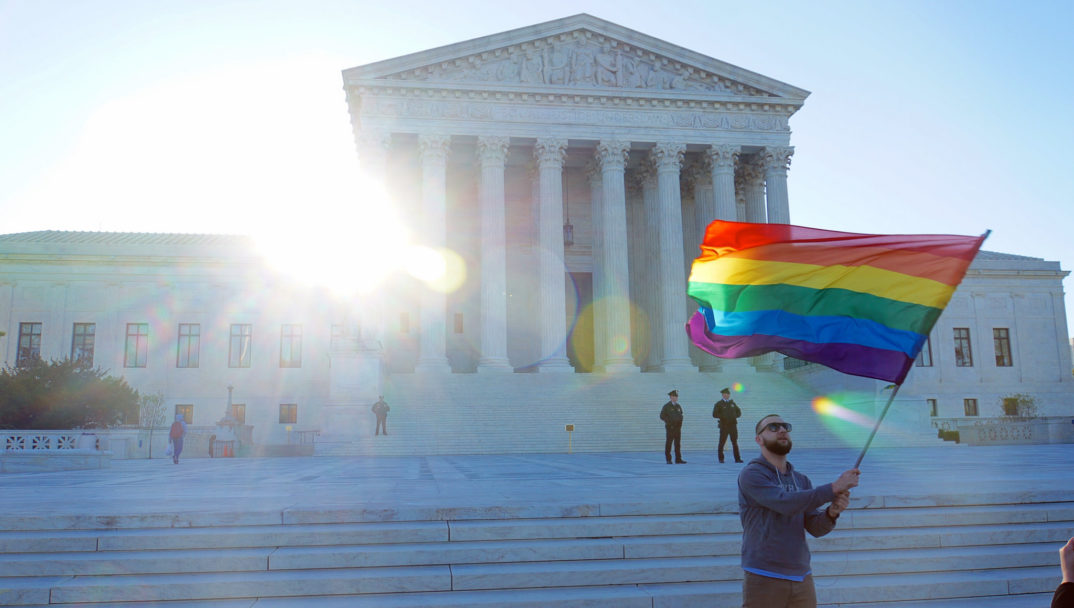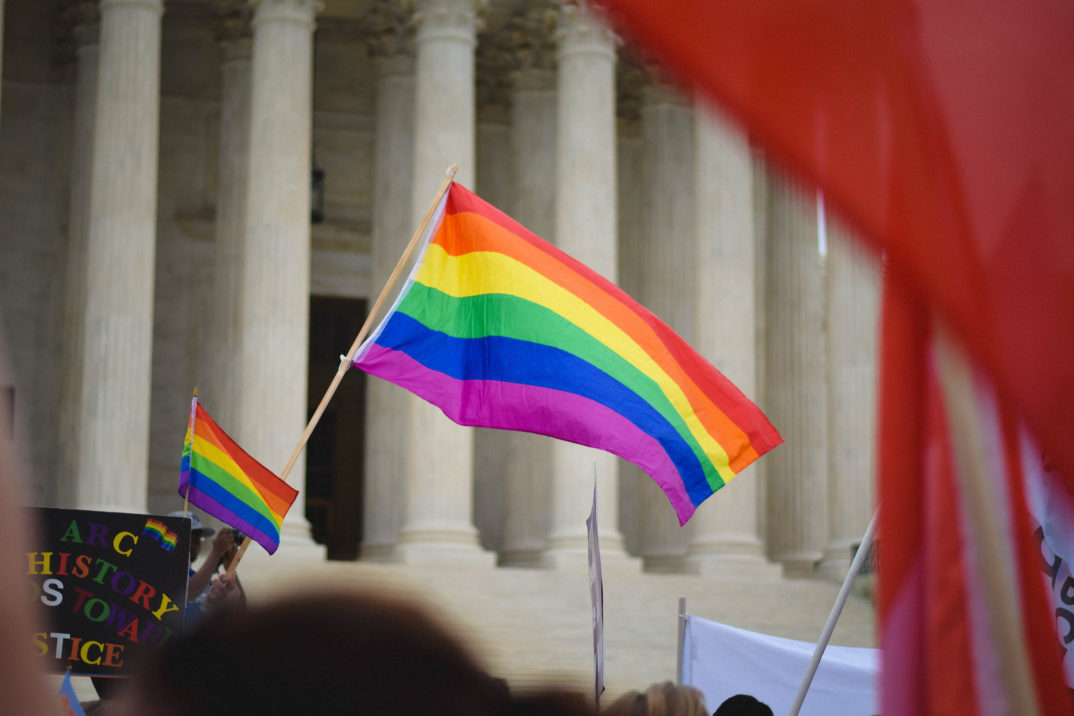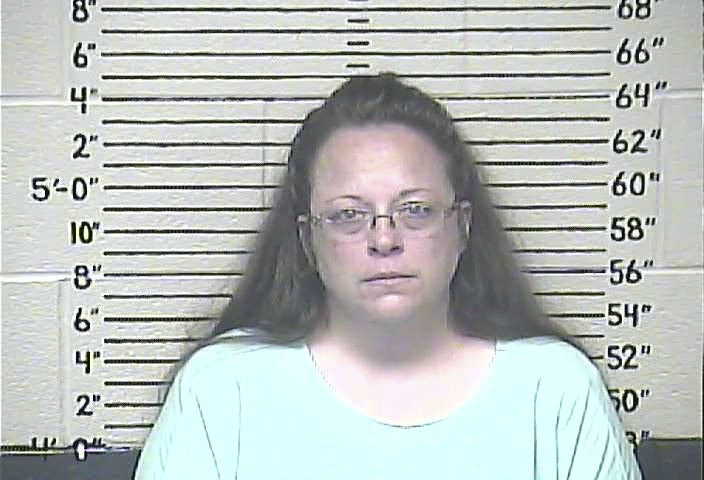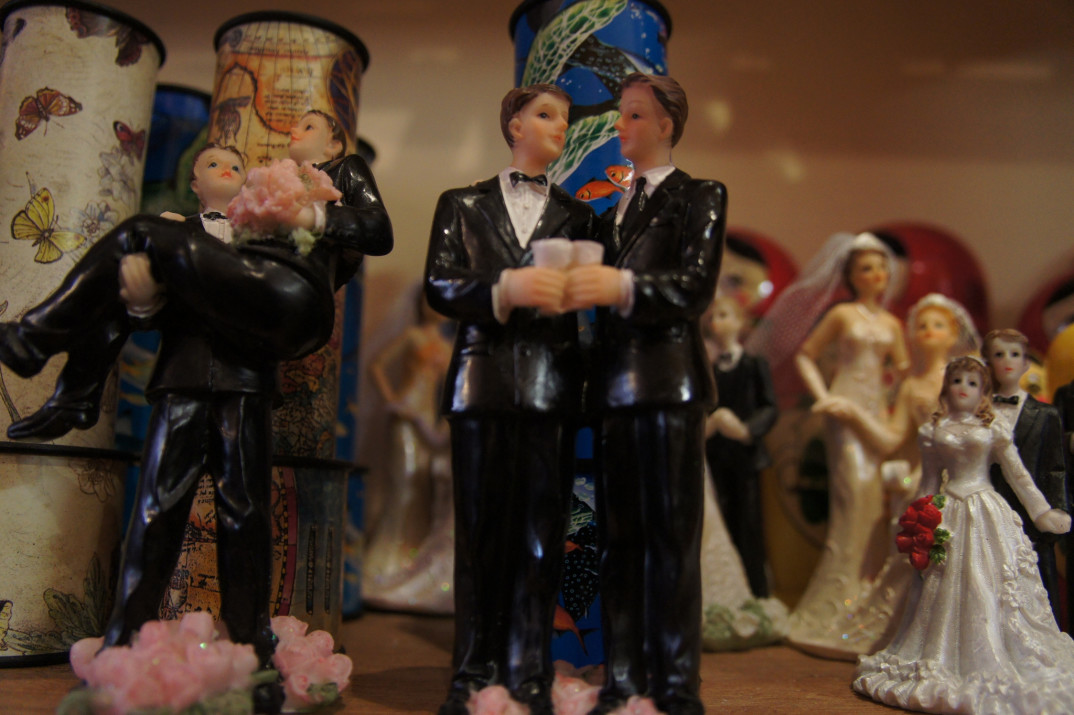As the Supreme Court’s decision is announced in the Obergefell v. Hodges case, one cannot help but reflect upon the shape the discourse has taken, and the possibilities for continuing the conversation about LGBTQ equality. The media coverage has focused on the right to marry, but what about the host of other heretofore denied rights of contract, such as the right to divorce, or the right to form parental agreements? Consider a thought experiment, one similar to the content of some of the testimony heard before the Court:
Imagine you and your partner are residents of New York and you marry there. You both later move to Louisiana for work (or simply because you want to live on the bayou). At some later point, your marriage fails and you separate (for years). Yet, since the state of Louisiana does not recognize your marriage, you cannot get divorced. As you drive home to visit family in upstate New York, you decide to view Niagara Falls from the Canadian side. As you drive across the border, it occurs to you that Canada will certainly recognize that marriage you could not legally exit—should some unfortunate fate befall you, your estranged spouse might have a say over your healthcare decisions, or could take possession of your body. After your vacation, as you drive back across the United States, you realize how often your marital status changes—married in New York, single in Tennessee, married in North Carolina, single in Kentucky.
This thought experiment was a lived reality for individuals across our country, and arose as a result of a patchwork system of recognition. A patchwork system of recognition exists when individual states can choose whether to extend rights to groups that have historically been denied them, and if so, the terms under which such rights will be recognized, enabled, inhibited, or blocked altogether. When a patchwork system of recognition is in place, it can give rise to a number of practical and ethical concerns.
The first challenge that arises from a patchwork system is the clear limitation on one’s freedom of action and freedom of movement that are antithetical to the spirit of a liberal democracy. In this regard, the state has two corresponding duties derived from the general citizen’s freedom of movement: a guarantee that the State will protect the right to travel across city and state lines, and ensuring a citizen’s right to be treated equally to those who are already residing in the area (e.g., not facing unduly burdensome restrictions placed on the right to vote, freedom of expression and association, and that the public acts of one state will be recognized and upheld in other jurisdictions). While this practical constraint is now lifted for those who are married in one state and heretofore unrecognized in others, what of parental agreements and second-parent adoption rules? There are plenty more barriers to full equality and recognition in the contractual agreements that mediate familial life and personal relationships.
The second, more profoundly philosophical, challenge presented by a patchwork system is the effects on one’s personal identity—to what extent can I conceive of myself as autonomous if the state blocks my ability to enter into certain kinds of agreements and be recognized as I wish to be? The state mediates our personal relationships—those between romantic partners and those between citizens and their children, most notably. Insofar as regulatory mechanisms (i.e., contracts or legislation) reflect how individuals see themselves, or at least provide measures to align identity with recognition, this mediation can appear seamless. However, where recognition and uptake fail, the result is narrative friction. My life’s narrative, the self-told story that helps us maintain a sense of who we are over time, becomes interrupted because of state interference. Marital status and parental status, like a person’s sexual identity is a constitutive part of our lives and determines how we constitute many aspects of our practical identities. There are normative expectations and judgments made about one’s behavior, informing how others treat you.
As we move forward, and take up the next battle in the barrier to LGBTQ equality, let us keep in mind that we are legislating people’s lives, their identities, and whether they are recognized throughout the entire country. How does contract law, in itself, dehumanize the texture of human relationships? To what extent should we be mediating our relationships in this way? These questions should be part of the broader conversation concerning the next steps in the long road to equality.





